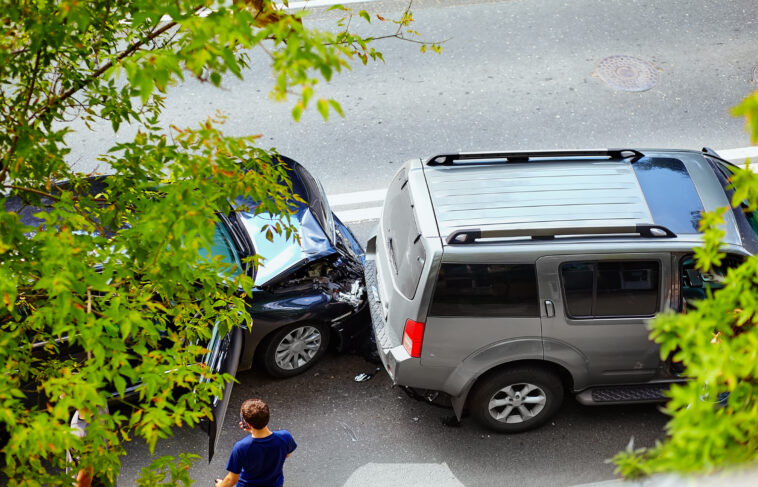In the dynamic and often unpredictable realm of vehicular travel, collision insurance stands as a vital safeguard. This detailed exploration is designed to illuminate the intricacies of collision insurance, offering clarity and guidance to vehicle owners navigating the complexities of this essential coverage. We delve into what collision insurance is, its importance, nuances, and how it integrates into a broader vehicular insurance strategy, equipping you with the knowledge to make informed decisions for optimal protection.
Understanding Collision Insurance
Collision insurance is a type of auto insurance coverage that helps pay to repair or replace your vehicle if it’s damaged in an accident with another vehicle or object, such as a fence or a tree. Whether you’re at fault or not, collision insurance can be a financial lifesaver, stepping in when the unexpected happens.
Why Collision Insurance is Essential for Vehicle Owners
The road can be unpredictable, and even the most careful drivers can find themselves in a collision. Collision insurance is crucial as it ensures that your vehicle can be repaired or replaced, maintaining your mobility and independence. It’s particularly important for those with valuable or newer vehicles, where the cost of repairs or replacement could be burdensome.
What Collision Insurance Covers
- Accidents Involving Another Vehicle: Covers damage to your car when you hit, or are hit by, another vehicle.
- Single-Car Accidents: Includes rollovers or collisions with stationary objects like trees or guardrails.
- Damage from Potholes: Can cover damage caused by driving over potholes, depending on the policy.
Choosing the Right Collision Insurance Policy
- Assess Your Vehicle’s Value: Consider the age and value of your vehicle. Collision insurance is most beneficial for newer or more expensive cars.
- Understand Your Deductible: Choose a deductible amount (the out-of-pocket cost you pay before insurance kicks in) that you’re comfortable with and that aligns with your financial situation.
- Compare Coverage and Rates: Shop around and compare different insurance providers to find the best coverage at a competitive rate.
- Read the Fine Print: Understand the exclusions and limitations of the policy to ensure it meets your needs.
- Consider Bundling Policies: You might save money by bundling collision insurance with other types of auto insurance or different insurance policies altogether.
Collision Insurance: Questions and Answers
Q: Is collision insurance required by law?
A: No, collision insurance is not legally required. However, if your vehicle is financed or leased, your lender may require you to have collision insurance.
Q: How does collision insurance differ from comprehensive insurance?
A: While collision insurance covers damages to your vehicle from accidents, comprehensive insurance covers non-collision damages, such as theft, vandalism, and natural disasters.
Q: Can I drop collision coverage on an older vehicle?
A: Yes, you can choose not to renew collision coverage on an older vehicle. It’s often recommended if the vehicle’s value is low and not worth the cost of the premium and deductible.
Q: Does collision insurance cover damage to another person’s vehicle?
A: No, collision insurance only covers damage to your vehicle. Damages to another person’s vehicle would be covered under liability insurance.
Q: How do I file a collision insurance claim?
A: To file a claim, contact your insurance provider as soon as possible after the accident, provide all the necessary details and documentation, and follow their guidance through the claims process.
Maximizing the Benefits of Collision Insurance
To make the most of your collision insurance, stay informed about your policy details, promptly report accidents to your insurer, and regularly review and adjust your coverage to match the changing value of your vehicle.
The Future of Collision Insurance in the Evolving Auto Industry
As the auto industry evolves with advancements like autonomous vehicles and changing driving habits, collision insurance will also adapt. This may include changes in risk assessment, premium calculation, and coverage options to suit the new landscape of vehicular travel.
Conclusion
Collision insurance is a critical component of a comprehensive auto insurance portfolio. It offers peace of mind and financial protection in the face of unforeseen road incidents. By understanding the scope of collision insurance, assessing your vehicle’s insurance needs, and choosing the right policy, you can navigate the roads with confidence, knowing you are well-protected against potential financial setbacks due to vehicular collisions.
Embrace the responsibility of ensuring your vehicle with the right collision coverage, and drive into the future secure in the knowledge that you and your vehicle are well protected.
Tags: Collision Insurance, Auto Insurance, Vehicle Protection, Risk Management, Insurance Policies, Financial Security



